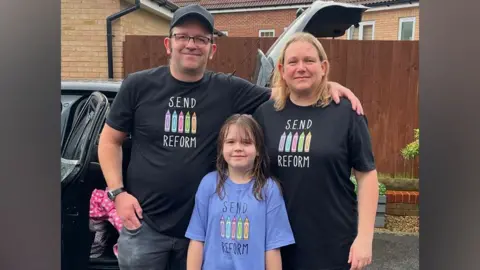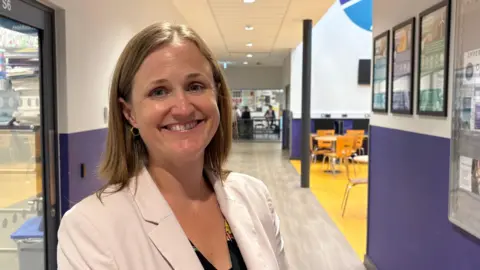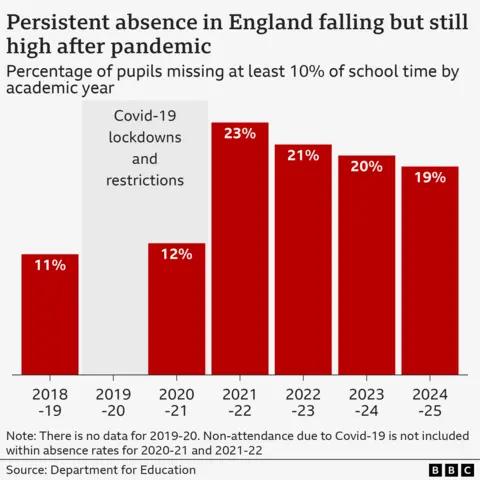Education
Trump’s war on Harvard was decades in the making. This letter proves it | Bernard E Harcourt

On the shelf in my library, I have an autographed copy of a book written by a former Republican congressman from New York, John LeBoutillier, titled Harvard Hates America: The Odyssey of a Born-Again American. It was published in 1978, two years before LeBoutillier was elected to Congress – and decades before the Trump administration’s assault on the institution. But its message is familiar in 2025.
The book is a scathing criticism of Harvard University, in large part over its supposed left-leaning professors who allegedly indoctrinate their undergraduates. Its thrust is straightforward: Harvard is America’s problem.
Today, the blueprint for Donald Trump’s attack on Harvard, Columbia and other liberal arts colleges and universities can be found in another text: Project 2025’s Mandate for Leadership, a guide to rightwing government reform published in April 2023 by the Heritage Foundation – over a year before any encampments went up on Columbia’s campus. But the Republican ambition to subjugate Harvard and Columbia traces further back, at least to the 1970s, when it became apparent that college-educated voters favored the Democratic party.
My copy of Harvard Hates America is autographed and dedicated to two constituents. And I recently stumbled on something tucked into the fold: a letter that LeBoutillier enclosed to the recipients of his gift. On House of Representatives stationery, LeBoutillier wrote:
Long after I had graduated from Harvard and was a freshman member of Congress, I realized just how terrible some of the people educating our young are; they are not only liberals, but they use their “power” over their students to preach an anti-American leftist point of view. And this is not confined to Harvard. Indeed, this is a disease spreading throughout the academic world.
I believe that this politicalization of education threatens this country. And, coupled with a bias so obviously evident in the media, makes it difficult for we conservatives to get our message across.
Well, I’m going to continue to fight for our point of view and our principles.
Enjoy the book.
LeBoutillier was not alone in these sentiments. In a taped conversation with Henry Kissinger and Alexander Haig Jr in the Oval Office on 14 December 1972, President Richard Nixon attacked university professors, claiming they were the enemy. His rhetoric was characteristically colorful: “The professors are the enemy. Professors are the enemy. Write that on the blackboard 100 times and never forget it.”
Conservatives like the journalist Irving Kristol, the philosopher Allan Bloom, and Ronald Reagan’s education secretary, William Bennett, would perpetuate the criticisms of supposedly left-leaning universities in the 1980s. And there is a straight line from those attacks in the 1970s and 80s to the Trump administration.
In a speech titled “The universities are the enemy” and delivered at the National Conservatism Conference in Orlando, Florida, on 2 November 2021, JD Vance declared: “I think if any of us want to do the things that we want to do for our country and for the people who live in it, we have to honestly and aggressively attack the universities in this country.” Vance would then add, quoting Nixon: “There is a wisdom in what Richard Nixon said approximately 40 to 50 years ago. He said, and I quote, ‘The professors are the enemy.’”
The Heritage Foundation picked up the baton in a 43-page chapter on education in the Project 2025 text. Remarkably, the Trump administration’s continuing assault on Harvard, Columbia and other universities is unfolding line-by-line, chapter and verse, from that script.
So, right after a federal judge in Boston blocked the Department of Homeland Security from revoking Harvard University’s ability to enroll foreign students, Marco Rubio, the secretary of state, announced that the administration intended to revoke the visas of Chinese students, especially those with ties to the Chinese Communist party. On page 355 of its Mandate for Leadership, Project 2025 calls for “Confronting the Chinese Communist Party’s Influence on Higher Education”.
At a press conference in the Oval Office on 30 May 2025, Trump attacked Harvard and said he would redirect the school’s grants to vocational education. “I’d like to see the money go to trade schools,” Trump said. The remark, again, came straight out of the Project 2025 playbook, which states on pages 15-16 and 319 that the federal government should prioritize “trade schools” and “career schools” over the “woke-dominated system” of universities.
The Trump administration demanded that Columbia’s Middle Eastern, South Asian and African studies program be placed “under academic receivership”. Again, straight out of the playbook. Project 2025 calls on page 356 for “wind[ing] down so-called ‘area studies’ programs at universities”.
Trump signed executive orders on inauguration day banning diversity, equity and inclusion (DEI) and “gender ideology” at institutions such as universities that receive federal funding. Again, textbook material. Project 2025 argued on page 322, regarding educational institutions, that “enforcement of civil rights should be based on a proper understanding of those laws, rejecting gender ideology and critical race theory”.
In fact, the first line of the chapter on education in Project 2025 says it all: “The federal Department of Education should be eliminated.”
Christopher Rufo, the conservative activist behind the attack on critical race theory and gender studies, has openly described the Republican attack on universities as a “counter-revolution” planned well before the campus protests. The Republican offensive traces back at least to the rise of the Black Lives Matter and abolition movements in the wake of the police killings of Eric Garner, Michael Brown, George Floyd and others. “It’s a revolution against revolution,” Rufo admitted, adding: “I think that actually we are a counter-radical force in American life that, paradoxically, has to use what many see as radical techniques.”
And what the Trump administration has accomplished with its ongoing assault on Harvard and Columbia is the “prototype” of that wider counterrevolution. Rufo is explicit about this. “If you take Columbia University as really the first trial of this strategy, we’ve seen an enormous payoff,” he said. “I’d like to see that prototype industrialized and applied to all of the universities as a sector.”
Given this history tracing back to the 1970s, it is puzzling why people continue to believe that the Republicans are trying to reform the universities to address antisemitism. It should be clear that their actions are instead part of a decades-long effort to humble universities for political reasons, namely to counter the trend that college-educated people tend to vote Democratic. Nixon was frank about this. That’s what made professors the enemy.
On top of that, of course, there is profit and political economy. At the press conference last week, Trump admitted why he wants to shift education funding to trade schools.
Encouraged by billionaire Elon Musk at his side, Trump said: “I’d like to see trade schools set up, because you could take $5bn plus hundreds of billions more, which is what is spent [on research universities], and you could have the greatest trade school system anywhere in the world. And that’s what we need to build his rockets and robots and things that he’s doing” – pointing to Musk.
Trump could not have been more explicit. “We probably found our pot of gold,” Trump adds, “and that is what has been wasted at places like Harvard.”
The Trump administration has seen some successes in its counterrevolution against higher education. So far, the lower federal courts have run interference. But there have been major casualties already, especially in the funding of sciences and medical research, academic integrity and autonomy, and area studies. Faculty governance at some universities has also been diminished, at some universities decimated.
Anyone who is genuinely interested in understanding what the Trump administration is up to and to anticipate its next moves should return to books like Harvard Hates America and then read Project 2025’s chapter on education. It clearly explains the past four months and predicts the future – one in which the federal government will sacrifice liberal arts colleges and universities to the benefit of trade schools, faith-based institutions and military academies.
The path ahead also includes, in all likelihood, eliminating the American Bar Association as an accrediting system (page 359), as well as the other actors in the “federal accreditation cartel” (pages 320 and 355); terminating the Public Service Loan Forgiveness Program (page 354), phasing out income-driven repayment plans (page 337), and privatizing student loans (page 340); allocating at least 40% of federal funding of education “to international business programs that teach about free markets and economics” (page 356); and a host of other radical proposals.
It is time now to be honest about the decades-long history of the Republican assault on higher education. Too many of the university leaders who are negotiating with the Trump administration about campus protest are naive at best and fail to grasp the stakes of the ongoing counterrevolution – or complicit at worst. In the process, they are undermining their universities and violating their fiduciary duties to their constituents – students, alumni, faculty and staff. By capitulating based on a pretext, a feint in military terms, those leaders have sacrificed the integrity of the research enterprise and the autonomy of the academy.
Liberal arts colleges and universities are a gem in the US, envied by people around the world. Their strength lies in fostering critical thought, creativity and inventiveness throughout the humanities, social sciences, and natural and applied sciences. A liberal arts education, at its best, cultivates critical thinking that challenges society’s strengths and weaknesses, and asks how to make the world more just with more freedom for everyone. Those are the true aims of higher education.
-
Bernard E Harcourt is a professor of law and political science at Columbia University in New York City and a directeur d’études at the École des Hautes Études en Sciences Sociales in Paris. He is the author most recently of “A Modern Counterrevolution” in The Ideas Letter
Education
‘I regret pushing my daughter into school until she broke’

Ben SchofieldPolitics correspondent, BBC East
 Ben Schofield/BBC
Ben Schofield/BBCThe start of the school year saw the Education Secretary Bridget Phillipson warn parents about the need for children to attend classes.
Data suggests half of pupils who missed lessons in the first week of term last year went on to become persistently absent.
But school leaders say they are seeing more children who find attending school too traumatic.
What is it like having a child with what psychologists call emotionally based school avoidance and what should be done to help?
 Family handout
Family handoutThe final time Julie took her daughter to school in July 2023, a member of staff congratulated her.
Rosie, who was then eight, was “wearing a dirty pyjama top, a pair of jogging bottoms, a pair of trainers with no socks, she had her headphones on, she was holding a teddy”, Julie recalls.
“I walked into school and the [special needs co-ordinator] then said to me ‘well done, you got her here’.”
But for Julie, 48, it was not a “win”.
“She couldn’t even speak, she hadn’t eaten, she had maybe three or four hours sleep.
“But I’d done a good job as a parent for making her go to school?”
 Family handout
Family handoutAt the time Rosie, who has autism, was in Year Three at a primary school in Northamptonshire.
Julie says her daughter had struggled with the school environment since her time in nursery and is now educated out of school.
Rosie, she recalls, was “in fight and flight the whole time” she was in the classroom, which “just overwhelmed her”.
Eventually Rosie was “begging not to leave” the house for school and was self-harming, sometimes on the school run.
“She would have night terrors – she would be up screaming, if she went to sleep at all.
“It just felt as if I was walking her into the lion’s den every single day,” she says.
Meanwhile, Julie and her husband James received letters and home visits from school staff about Rosie’s attendance.
“It was very lonely.
“All of a sudden there’s these letters and people are talking about fines and I was lost.”
On that final say Julie says she “dragged” Rosie to school because “that was the expectation”.
Now she wishes she had taken Rosie out of school earlier.
“But I also feel that if I hadn’t have got to the point… where she broke, I would never have known if it had worked,” she says.
 Ben Schofield/BBC
Ben Schofield/BBCBased on Rosie’s reaction to school, an educational psychologist who assessed her noted she had “emotionally based school avoidance” or EBSA, a condition school leaders say they are encountering more.
Anna Hewes, the head teacher of Prince William School, a 1,400-pupil secondary in Oundle, Northamptonshire, says schools are seeing a “big increase” in EBSA among pupils in Year Seven, Eight and Nine.
The transition to secondary school is, she adds, a “key time” and at the start of the school year EBSA is “at the forefront of our minds because of the new year sevens coming through”.
The “noises, the bustling nature of a school – the busyness, all the classes walking around” make it a “real challenge” for those with sensory needs, she says.
But more generally “it’s very tough to be a teenager these days”.
Smartphones and social media, she adds, mean “young people can’t escape anymore”.
“It definitely is a post-Covid spike and these young people are genuinely really struggling to step over the threshold of the school and sometimes leave their bedrooms.”
 DJ McLaren/BBC
DJ McLaren/BBCAcross England, rates of “persistent absence” – when pupils miss 10% or more of lessons – have remained high since the pandemic.
Last academic year almost 19% of pupils were persistently absent, compared with 11% in 2018/19.
Mrs Hewes says EBSA is a “significant part” of the issue.
A lack of reliable data, however, means it is difficult to know how big a part.

Mrs Hewes says Prince William Academy prioritises “inclusion” and has recruited an assistant head teacher for “belonging”.
It has also opened a specialist “school-within-a-school” for pupils with EBSA, funded by North Northamptonshire Council. Four students have been enrolled so far and by 2028 it expects to see 48.
Jenny Nimmo, the head of inclusion at East Midlands Academy Trust, which runs Prince William Academy, says the unit will have more “homely” classrooms and on-site mental health provision.
She hopes it will be “future proof” because EBSA “isn’t going away”.
There are, she adds, “more and more young people” with “emotionally based school avoidance and indeed anxiety”.
 Ben Schofield/BBC
Ben Schofield/BBCThe Compass Centre in Luton also help pupils with EBSA access education.
Dr Joanne Summers, Luton Borough Council’s principal educational psychologist, says the condition can appear suddenly but “when you look back, there has been anxiety around being in school” and one incident might be a “catalyst”.
Intervening early, she adds, is important, as falling behind on school work and losing contact with friends can make anxiety worse.
Dr Summers says Luton has been trying to move away from seeing school absences as “defiance and truancy”.
“We are being curious about what’s going on for that young person, why is it that they are behaving in this way,” she adds.
 Ben Schofield/BBC
Ben Schofield/BBCGeoff Barton, a former head teacher in Suffolk and previous general secretary of the Association of School and College Leaders, says there should be more “emphasis on the humanity of our schools” rather than “draconian discipline” over absences.
He is researching special educational needs (Send) provision for the left-leaning think tank the Institute for Public Policy Research.
He says the people he is speaking to are “universally saying” that anxiety among pupils has increased.
But the “age of anxiety” is only one reason for persistent absence.
Another is poverty, while he says there is also a “long shadow in education of Covid” when “schools started to feel a bit more of an optional decision”.
Cornelia Andrecut, the executive director of children’s services for North Northamptonshire Council, said the authority has offered training courses for schools to learn strategies to support children with EBSA.
The government says it will spend £740m creating “more specialist places in mainstream schools” and placing Send leads in 1,000 new family hubs.
A Department for Education spokesperson says: “Schools should take a ‘support first’ approach for children who are facing barriers to regular school attendance, and we are expanding access to mental health support teams in all schools, ensuring that every pupil has access to early support services in their community.”
 Family handout
Family handoutFor Julie, taking Rosie out of school was “not a lifestyle choice” but was prompted by “trauma and distress” that her daughter is still recovering from.
Does she regret pushing Rosie to attend school?
“Yeah – definitely.
“I always wonder if there was a bit of trust broken between us as mum and daughter when I still took her into that place when it was that bad.”
Education
Earl Richardson, who spotlighted HBCU funding disparities, dies : NPR

Earl Richardson was the president of Morgan State University between 1984 and 2010.
Morgan State University
hide caption
toggle caption
Morgan State University
Earl Richardson was a Black college president — “armed with history,” as a colleague described him — when he led a 15-year-long lawsuit that ended in a historic settlement for four Black schools in Maryland and put a spotlight on funding disparities for all of the nation’s historically Black colleges and universities (HBCUs).
Richardson’s death, at 81, was announced on Saturday by Morgan State University, located in Baltimore, where he served as president when he helped organize the lawsuit that began in 2006. It was settled in 2021 when the state of Maryland agreed to give $577 million in supplemental funding over 10 years to four HBCUs.
Richardson led Morgan State from 1984 to 2010 and he had long chafed at stretching the little funding he got from the state. In the lawsuit, plaintiffs argued that Maryland had historically underfunded its Black colleges and had put them at a disadvantage by starting and boosting similar programs at nearby majority-white schools.
David Burton, one of the plaintiffs, told NPR that the case was compared to Brown v. Board of Education, the landmark lawsuit that brought up similar issues of disparities in educational opportunities for Black students, but the Maryland case raised the issues for students in higher education.
In 1990, when Richardson was a new school president, students took over the administration building for six days to protest the school’s dilapidated classrooms and dorms, with roofs that leaked and science labs stocked with outdated equipment.
Edwin Johnson was one of those student protesters. “We originally were protesting against Morgan’s administration,” including Richardson, he said. “But then after we dig and do a little research, we find out it’s not our administration, but it’s the governor down in Annapolis that isn’t equipping the administration with what they need to appropriately run the school.”
The protest ended when the students marched 34 miles to Annapolis to demand a meeting with the governor.
Richardson, who spoke of taking part in civil rights demonstrations when he was in school, had subtly guided the students to the correct target, said Johnson, who is now the university’s historian and special assistant to the provost.
That protest helped pave the way to the future, historic lawsuit.
Because Richardson was the university’s president, and an employee of the state, he couldn’t sue the state. So, a coalition of students and former students was created, the Coalition for Equity and Excellence in Maryland Higher Education Inc., to serve as the plaintiff.
Still, Richardson was the visionary behind the lawsuit, said Burton, a Morgan State alumnus and now a strategic planner for businesses. “He was armed with history,” Burton said.
“Dr. Richardson knew where the skeletons were,” Burton added. He was “a force that the state could not reckon with because of his institutional knowledge.”
At one point, during the trial, state attorneys objected to Richardson’s presence in the courtroom and asked the judge to make him leave, even though he had a right to be there as an expert witness, said Jon Greenbaum, then the chief counsel of the Lawyer’s Committee for Civil Rights Under Law, who helped argue the lawsuit.
Richardson stayed in the courtroom and “because this was really a desegregation case,” said Greenbaum, he provided historical detail that became critical to the arguments made by the lawyers representing the plaintiffs.
The funding that resulted, and Richardson’s leadership, jump-started what is now called on campus “Morgan’s Renaissance.” Or sometimes, said Johnson: “Richardson’s Renaissance” — because during Richardson’s presidency, enrollment doubled, the campus expanded with new buildings and new schools were added, including a school of architecture and a school of social work.
Richardson’s work put a spotlight, too, on the funding disparities faced by HBCUs across the country. They are more likely than other schools to rely upon federal, state and local funding — money that has faced budget cuts in recent years. Compared to other universities and colleges, HBCUs get a higher percentage of their revenue from tuition and less from private gifts and grants, according to one study.
In testimony before the U.S. House of Representatives in 2008, Richardson emphasized the mission of HBCUs when he told lawmakers that Black schools like his educated the most talented Black students but also sought to attract students who didn’t consider, or thought they couldn’t afford, to go to college. “We can make them the scientists and the engineers and the teachers and the professors — all of those things,” he said. But only if “we can have our institutions develop to a level of comparability and parity so that we are as competitive as other institutions.”
Education
How millions of dollars in funding cuts will impact Hispanic Serving Institutions
Chancellor Sonya Christian of the California Community College system talks about the impact of funding cuts for students.
-

 Business2 weeks ago
Business2 weeks agoThe Guardian view on Trump and the Fed: independence is no substitute for accountability | Editorial
-
Tools & Platforms1 month ago
Building Trust in Military AI Starts with Opening the Black Box – War on the Rocks
-

 Ethics & Policy2 months ago
Ethics & Policy2 months agoSDAIA Supports Saudi Arabia’s Leadership in Shaping Global AI Ethics, Policy, and Research – وكالة الأنباء السعودية
-

 Events & Conferences4 months ago
Events & Conferences4 months agoJourney to 1000 models: Scaling Instagram’s recommendation system
-

 Jobs & Careers2 months ago
Jobs & Careers2 months agoMumbai-based Perplexity Alternative Has 60k+ Users Without Funding
-

 Podcasts & Talks2 months ago
Podcasts & Talks2 months agoHappy 4th of July! 🎆 Made with Veo 3 in Gemini
-

 Education2 months ago
Education2 months agoMacron says UK and France have duty to tackle illegal migration ‘with humanity, solidarity and firmness’ – UK politics live | Politics
-

 Education2 months ago
Education2 months agoVEX Robotics launches AI-powered classroom robotics system
-

 Podcasts & Talks2 months ago
Podcasts & Talks2 months agoOpenAI 🤝 @teamganassi
-

 Funding & Business3 months ago
Funding & Business3 months agoKayak and Expedia race to build AI travel agents that turn social posts into itineraries


